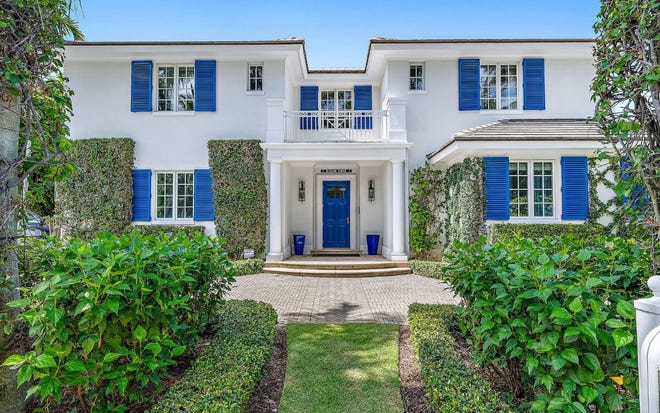No other phrase has defined the 2023 housing market as much as the “mortgage rate lock-in effect” – a phenomenon that brought the industry to a standstill, putting downward pressure on everything from inventory levels to home sales.
The pandemic-era sub-5% mortgage interest rates that 85% of mortgage holders are locked in to kept homeowners from selling their home and buying another at elevated interest rates, which peaked at 7.79% the week ending Oct. 26, according to Freddie Mac.
But will things change this year?
There are signs that market conditions will be improving.
Mortgage rates dropped steadily over the past seven weeks, averaging 6.61 % for a 30-year fixed mortgage, the week ending Dec. 28.
Learn more: Best mortgage lenders
The lower mortgage rates provided a boost to existing-home sales which grew in November, up 0.8% from October and breaking a streak of five consecutive monthly declines, according to the National Association of Realtors.

Year-over-year, sales fell 7.3% (down from 4.12 million in November 2022).

“A marked turn can be expected as mortgage rates have plunged in recent weeks,” says National Association of Realtors Chief Economist Lawrence Yun.
Housing shortages will continue
One thing most experts don’t expect to see is an end to shortage of homes for sale.

“Despite this, households will have more options in 2024 from a small uptick in single-family home construction, and the completion of the large number of multifamily units that are under construction, the vast majority of which are destined to be rental homes,” says Danielle Hale, chief economist for Realtor.com.
The additional inventory of new construction homes and apartments will curb the uptick in home and rental prices even as long-running shortages keep prices from slipping too far.
Today’s acute supply shortage will be hard to undo, says Odeta Kushi, deputy chief economist at First American.
“While single-family housing starts have steadily increased throughout 2023, it will take years of accelerated new home construction to narrow the supply shortage gap from more than a decade of underbuilding,” she says.

Home price growth will vary from market to market
Against this backdrop, nationwide sales are expected to see only a modest uptick in 2024 over 2023’s long-term low. Real estate activity will vary significantly from market to market with some top-growth areas expected to see double-digit increases, according to Hale.
Combined sales and price activity are expected to be highest in two major groups of markets. The first are affordable markets in the Midwest and Northeast like Toledo, Ohio, Rochester, New York, says Hale. The second set are in Southern California where a reduction in mortgage rates could help the area bounce back from a particularly slow 2023.
The median existing-home price for all housing types in November was $387,600, an increase of 4% from November 2022 ($372,700). All four U.S. regions posted price increases.
“Home prices keep marching higher,” Yun says. “Only a dramatic rise in supply will dampen price appreciation.”
Mortgage rates and affordability
Most experts predict the average 30-year mortgage rate to linger anywhere between 6.1% to 7% range in the first quarter, then decline throughout the year.

“Mortgage rates are likely to remain well above pandemic-era record lows because financial markets increasingly believe the country will avoid a recession in 2024,” says Redfin Chief Economist Daryl Fairweather. “Mortgage rates will fall to about 6.6% by the end of 2024. The gradual decline in rates combined with the small dip in prices will bring homebuyers some much-needed relief.”
Election year volatility will make mortgage rates jumpy, so 30-year fixed rate estimates range would be in the mid 6% range, according to Jeff Taylor, founder and managing director at Mphasis Digital Risk.

At a 7.125% rate and current median home prices, it takes $111,000 and $107,000 in household income to buy newly built and existing homes, respectively, with 5% down, says Taylor.
If mortgage rates fell 1% to 6.125% and home prices rose a modest 4% as projected by the Federal Housing Finance Agency in 2024, it would take $105,000 and $99,000 to buy newly built and existing homes, respectively, with 5% down.
New home construction
With a decline for mortgage interest rates and an ongoing housing deficit, Robert Dietz, the chief economist for the National Association of Home Builders is forecasting a gain for single-family housing construction starts in 2024. This will be the first year of increase after declines in 2022 and 2023.

“Due to low existing inventory, new construction has increased to approximately one-third of total single-family inventory in recent months when historically it was only 10% to 15%,” Dietz says.
Multifamily construction will experience a significant decline. Financing conditions are very tight and there are approximately one million apartments under construction, the highest total since 1973.
The level of remodeling activity will be approximately flat in 2024 compared to 2023. The housing stock is aging and requires reinvestment (the typical home in the U.S. is near 40 years old).